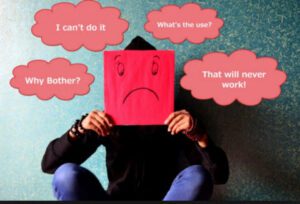Just to clarify one thing before going in depth: anxiety and depression are not symptoms of autism, but are often co-morbid with autism. In other words, when autistic individuals are experiencing how different they are from others and how their autism has affected their everyday life, depression and/or anxiety can develop as a result.

My depression became evident when I was 16 and found out I was diagnosed with Asperger’s at five-years-old. I was already having problems with relationships with my peers and a few of my teachers, but this discovery had revealed that I was anything but normal. It only got worse when specialists — though their efforts were well-intended — were trying to “work” with me.
Even in college, professors and a counselor who worked with me did not seem to know what to do with me other than to suggest getting additional help or tell me to trust God and stop being so childish. After that point, I started taking anti-depressants because my depression interfered with my work and they helped me regulate my emotions. Much like me, those with depression are often isolated, have difficulties sharing their thoughts and emotions, and encounter anxieties of being accused of being too sensitive or not trusting God.
Anxiety seems to be more common among autistic individuals by about 40%, compared to 15% of the general population, according to an article in Your Autism Magazine (winter 2014) by Dr. Anastasios Galanopoulus. Anxiety can lead to prolonged sadness, which is why anxiety and depression are usually mixed together in an individual.
Many, whether autistic or neurotypical, go through depression and anxiety at some point in their life, but it becomes a major problem if it affects social interaction and motivation to work. This is one reason why it is so important for us to step back and cope with our emotions before having to go back into the stress. Coping may take longer for those on the spectrum, so friends and family should be patient and encouraging as much as possible.
How you can help
If you are someone on the spectrum facing depression, make sure to express your thoughts and feelings to someone you can trust and who loves you for who you are as a person, rather than seeing you as a problem. Be encouraged that you are not alone in this. There are people who care for you and who know you are much more than your disability.



